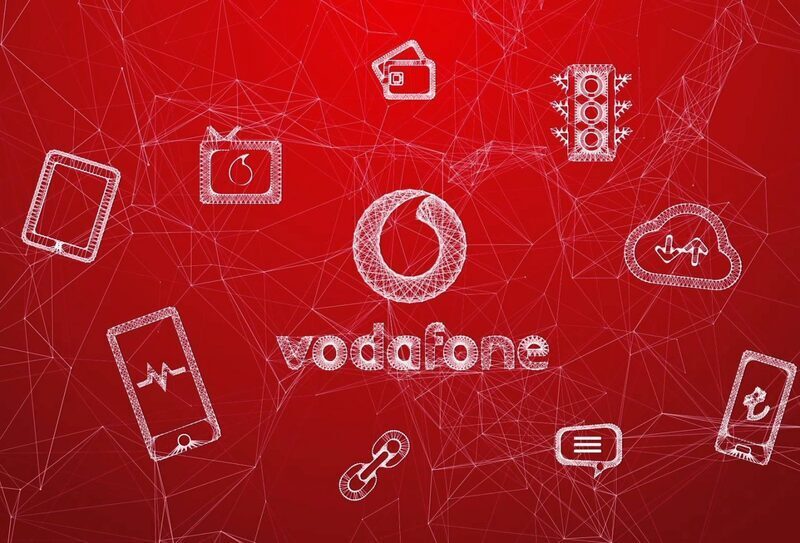
Water Conservation: 7 Simple Ways to Save Water at Home and in Your Business
Water is one of our most precious resources, yet it is often wasted without thought. ...

Vodafone Egypt has rallied up its Corporate Social Responsibility activities to attain the United Nations Sustainable Development Goals (SDGs). The company has launched several initiatives to provide products and services that enable a more sustainable society, promote a greener environment and eco-efficiency; develop the community with a focus on children’s well-being and youth development; and develop sustainable products and services for customers with special needs.
In March 2019, Vodafone Egypt launched a bid to establish a solar power plant in Egypt, making it the first company to produce energy rather than just consume it.
The plant is expected to produce 20-50 MW with investments of more than 500 million pounds covering the cost of constructions, energy production and distribution.
Vodafone Egypt is targeting a higher percentage of clean energy usage by increasing their dependency on renewable energy from 13% to 100% by 2025 in accordance with SDG 7 on Clean and Affordable Energy.
Egypt currently seeks becoming a regional electricity hub, through exchanging electricity with neighboring countries and collaborating with leading African ones to export electricity to countries in need. With this in mind, Vodafone’s plan to implement the solar energy plant aims at supporting the Egyptian economy and aligns with the government’s plans to increase the production of renewable energy, which also comes in line with Egypt’s Vision 2030.
As an environmentally aware business, Vodafone Egypt has set out to address global environmental issues that face our fragile eco-system. Becoming more energy efficient is one of the most vital aspects of increasing environmental sustainability and curbing the trend of climate change.
Using renewable energy is a key method of being more energy efficient, which is why Vodafone has taken measures to use the most abundant renewable energy source in Egypt – sunlight.
Vodafone Egypt started using solar energy to power remote and off grid sites in 2001, to improve the company’s environmental performance and decrease our overall carbon emissions. In this regard the company has achieved 200 solar-powered sites located across Sinai, the North Coast, the Red Sea Coast, Marsa Alam, Edfu, and the Western Desert Oasis, up from 167 in 2011.
The company has eliminated the need for diesel generator sets in these sites, hence saving over 50,000 tons of carbon emissions and the surrounding terrain from fuel leakage.
It has improved the lives of many people in isolated locations through uninterrupted operation on roads and remote areas, saving travel costs, improving safety on desert roads and keeping people in touch.
Vodafone Egypt has also implemented several initiatives in the network, offices and retail stores to improve energy efficiency. This is aligned with the Group commitment for Egypt to “reduce CO2 per network node by 20% against a 2010/11 baseline by March 2015 for emerging markets”.
All these initiatives contributed to a 23% reduction in grid power consumption by the access network between 2009 and 2013.
Energy saving initiatives implemented in Vodafone Egypt offices resulted in a significant reduction in power consumption between 2011 & 2012. These initiatives included installing LED lighting inside the company’s premises, motion sensors in meeting rooms, free cooling systems for our Head Quarter & Zahraa El Maadi building switch areas and new lower power consumption air conditioning units CCU for technical areas.
Moreover, Vodafone Egypt has been also putting efforts to find opportunities for waste recycling. It offered its customers an EGP 10 recharge card incentive for recycling old phones in Vodafone retail stores and dealers. Through working with suppliers and local partners, we are able to recycle over 350 tons of e-waste (batteries) as well as over 100 tons of other hazardous waste from Vodafone sites annually.
Vodafone Egypt regularly launched Handset Recycling Initiatives and in 2010 the company achieved a record 132,200 handsets recycled in the year ending March 2011.
The company has also cooperated with Hurghada Environmental Protection and Conservation Association (HEPCA), supporting them to recycle more than 6 tons of waste per year from Makadi Bay, Suma Bay, and the surrounding areas.
As for SDG 1 and 2 on No Poverty and Zero Hunger, Charity ExhibitionVodafone organized in 2014 a charity exhibition prior to Ramadan in all its premises hosting more than 20 NGOs displaying Ramadan products for employees. This is a part of Vodafone’s Corporate Responsibility.
Vodafone employees raised more than EGP 200K for Ramadan food bags. Vodafone matched the fund to distribute food bags to more beneficiaries and encourage the employees’ for the donations to good causes.
Vodafone supported the Egyptian Food Bank by sending over 2 Million awareness SMS to customers providing information about food boxes donations through Vodafone Cash, premium SMS and Food Bank call center. We have raised over EGP 100K for the Egyptian Food Bank during the week prior to Ramadan.
Vodafone collaborated with the Egyptian Food Bank where this year to distribute more than 5000 Vodafone employees packed more than 5K food boxes and support in the distribution process in three different Governorates (Giza-Badrashin, Baniy Suef and Fayoum). Vodafone employees volunteered to pack the food boxes at the Egyptian Food Bank and support in the distribution through its Ramadan Caravan.
Vodafone organized an elderly home Iftar at an“Dar El Taarof” elderly home encouraging its all employees to join and spend some good time with the elderly.
More than 20 employees joined the Iftar and had good chats with 150 elderly. They really left a good impact and significant memory to the elderly.
As for SDG 3 on Good Helath and Well-Being, Vodafone Egypt has launched in tandem with the National Heart Institute Fellows Association “heart to heart” medical caravans project with an aim to provide medical screening for 12000 school children aged 12-16 years in remote areas that are deprived of specialized medical care. The caravan brought together a highly qualified medical team of the National Hearts Institute and Vodafone volunteers, and it was supported with the latest equipment for heart diagnosis in addition to the ability to transmit medical data using Vodafone’s network to consult when required with the National Heart Institute. The project started in Marsa Matrouh governorate and continued to roam Egypt covering Cairo, Giza, Qalyoubia, Fayoum, Beni Suef, Asiut, Sohag, Aswan and North Sinai.
Vodafone Egypt also organized two Blood Donation campaigns every year to raise awareness on the life-saving importance of donating blood. During these campaigns, Vodafone employees donate blood to contribute to filling the needs of blood banks and emergency situations.
The campaigns were held in cooperation with National Heart Institute, the Ministry of Health and Population, the National Blood Transfusion Service and 57357 hospital for children. A total of 1262 bags have been donated to critical cases within 2 years.
Vodafone Egypt has also launched Medical Caravans for visual impairment and eyes conditions.Vodafone aspires to offer support to avail health services to Egypt’s remote villages and satellites which are often deprived of adequate health facilities and specialized medical care.
In 2006, Vodafone signed a cooperation protocol with the Egyptian Association for Blindness Prevention to conduct 67 medical caravans per year to cover Egypt’s rural areas in all governorates. The mobile caravan focused on availing medical examinations and care for individuals suffering visual impairments or eye conditions.
In 2010-2012, Vodafone supported 158 satellite clinics covering 42 villages in 16 governorates and examining more than 35,000 people. More than 500 Vodafone volunteers supported the medical caravans over two years and the community working hours amounted to 5000 hours.
Vodafone Egypt has also worked on renovating poor houses in the Upper Egypt governorate of Menya.To enable disadvantaged families with improved and healthy housing conditions, Vodafone contributed to the renovation of poverty-housing in Menya.
Vodafone cooperated with the American Chamber of Commerce and Habitat for Humanity to renovate poverty housing targeting low-income families in Al Kom Al Akhdar village in Menya governorate. Vodafone’s support enabled families to live in improved housing with access to clean water, indoor latrines, secure walls, increased space and separation between humans and livestock; therefore contributing to an improved health and hygiene conditions. The project which was implemented through Habitat for Humanity engaged Vodafone volunteers as part of the team who supported in the elimination of poverty housing.
Vodafone has been also interested in honing skills of youths to finds jobs. Egypt has a youthful population that is estimated to be 19 million in the age bracket of 18-29 years, according to Egypt Human Development Report 2010.
The Youth Leadership Initiative is a program that aims to develop the skills of Egyptian youth to contribute to their personal development and employability potential. YLI started in 2004 as an initiative led by Vodafone employees who were also skilled trainers.This initiative was delivered in partnership with Alashanek ya Balady (AYB). Since inception, the program reached 4000 students from various universities, including Cairo, Alexandria, Ain Shams, Helwan, the American University in Cairo (AUC) and the German University in Cairo (GUC). A total of 288 volunteers participated in this initiative with a total of 2304 community service hours.
Vodafone Egypt has been working hard for years to help Egypt realize progress towards the attainment of Sustainable Developments Goals.

اترك تعليقا